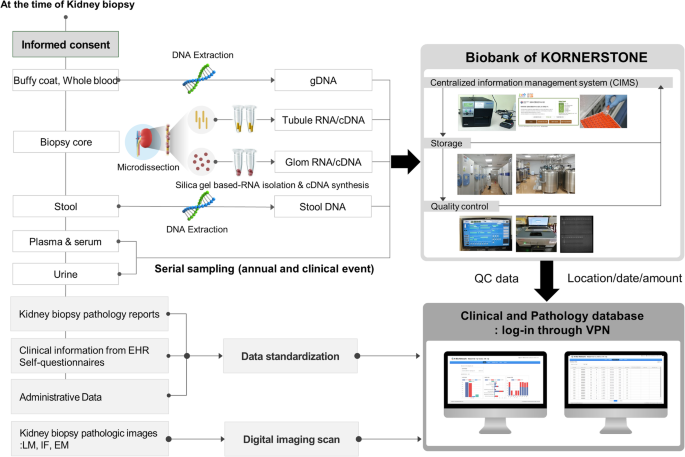Glomerular diseases, a set of debilitating and complex clinical disease entities affecting individuals of all ages, are associated with significant mortality and morbidity, including hospitalization and ESRD. Although there are many advances in understanding novel genetic and environmental factors affecting the pathophysiology of various glomerular diseases, there is an insufficient number of basic and translational studies that integrate clinical, pathological, and genetic information.

Overall schemes of the KORNERSTONE
To gain insight into pathophysiology and novel treatment targets of glomerular disease, various types of biospecimens linked to deep clinical phenotyping including clinical information, digital pathology, and well-defined outcomes are required. In this paper, the authors provide the rationale and design of the KOrea Renal biobank NEtwoRk System TOward Next-generation analysis (KORNERSTONE). The KORNERSTONE, which has been initiated by Korea Centres for Disease Control and Prevention, is designed as a multi-center, prospective cohort study and biobank for glomerular diseases.
Click here to read more.
